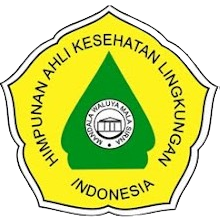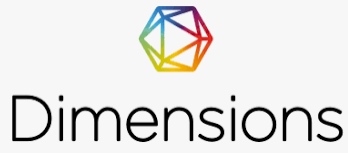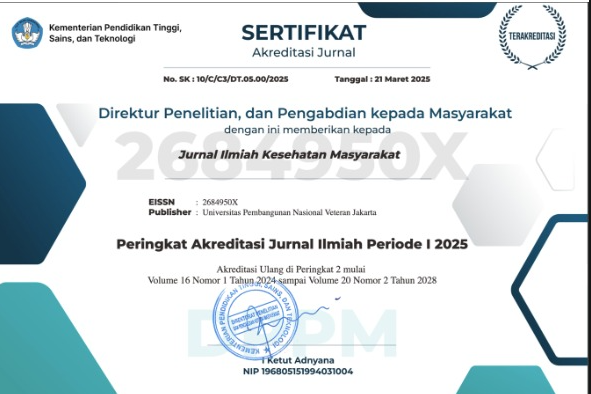Self-efficacy and Academic Stress in Senior High School Students Plus Assa'adah, Banten
Abstract
Background: The National Education System Law No. 20/2003 states that education aims to develop student potential. A religious learning approach is one of many methods to develop student potential. High School Plus Assa'adah uses this approach. However, this approach can increase students' academic stress due to busy schedules and tasks. Low self-efficacy can cause students to lack confidence in facing these tasks. This study aims to determine the relationship between self-efficacy and academic stress in high school students.
Method: This study used a cross-sectional design with observational analytics. A total of 90 respondents were studied with an age range of 14 - 17 years. The sampling technique was consecutive non-random sampling, with the inclusion criteria being students who were in eleventh-grade and physically filled out the questionnaire during the study. Exclusion criteria were students who were taking antidepressant and antianxiety drugs. Assessment of self-efficacy and academic stress using the General Self-Efficacy Scale and Student-Life Stress Inventory, the validity and variability tests of which are based on previous research. Chi-Square test was used to analyze the data with a significance level (p) <0.05.
Result: Most respondents were male (52.2%), and the highest age was 16 (64.4%). Most students had moderate self-efficacy (65.6%), while the others had moderate academic stress (57.8%). The Chi-Square test showed no relationship between self-efficacy and academic stress (p=0.277).
Conclusion: Self-efficacy was not associated with academic stress in high school plus students. It is necessary to look for other factors besides self-efficacy that can cause academic stress so that academic results can be improved.
References
Salam A, Suharnan, Matulessy A. The relationship between self-efficacy and social support with academic stress in students. Al-Irsyad: Journal of Islamic Counseling Guidance. 2019;1(2):325-42.
Sulfasyah S, Arifin J. Implications of non-formal education on adolescents. Equilib J Educ. 2017;4(2).
Amdadi Z, Nurdin N, Eviyanti, et al. Overview of girls' knowledge about the risks of early marriage in pregnancy at SMAN 1 Gowa. Journal of Education Innovation. 2021;2(7):2067-74. DOI: 10.47492/jip.v2i7.1053.
Rizkyta DP. The relationship between perceived father's involvement in parenting and emotional maturity in adolescents. Journal of Educational and Developmental Psychology. 2017;6(2):(13 p).
Utami SD. The relationship between self-efficacy and academic stress in grade XI students at MAN 3 Yogyakarta. Journal of Guidance and Counseling. 2015; 4(6):(13 p).
Miyono N, Muhdi M, Nyoman NA, et al. The influence of educators' soft skills and self-efficacy on academic stress of Madrasah Aliyah Negeri Semarang Regency students. J Smart Studi Masy Religi dan Tradisi. 2019;5(1):45-56. DOI:10.18784/smart.v5i1.746.Soeli YM, Yusuf MNS, Lakoro DDK. Stress level of students in schools that implement full day school system. Jambura Nurs J. 2021;3(1):1-11. DOI:10.37311/jnj.v3i1.9822
Rhamawan C. The relationship between self-efficacy and academic stress in undergraduate midwifery study program students at audi indonesia university. Journal Health Of Education. 2022;3(1):47-54
Wicaksono L. Study of academic stress in class viii students of smp negeri 18 pontianak. Khatulistiwa: Journal of Education and Learning. 2022;11(9):1576-83. DOI: 10.26418/jppk.v11i9.58102.
Antari I, Widyaningrum R, Priyanti SM. The relationship between academic self-efficacy and students' academic stress levels during the covid-19 pandemic. Journal of Madani Medika Health. 2021;12(2):215-26. DOI: 10.36569/jmm.v12i2.223.
Izzati IDC, Tentama F, Suyono H. Academic stress scale: a psychometric study for academic stress in senior high school. 2020;7(7). DOI:10.46827/ejes.v7i7.3161.
Barseli M, Ifdil I, Nikmarijal N. Students' concept of academic stress. J Counseling and Educator. 2017;5(3):143-8. DOI: 10.29210/119800.
Pramesta DK. The relationship between self-efficacy and academic stress in students at SMA X. Character: Journal of Psychology Research. 2021;8(7):23-33.
Faizah AN, Panduwinata LF. The effect of self-efficacy and self-regulation on student academic stress during the covid-19 pandemic. J Inov Educator Ekon JIPE. 2022;12(1):41-50. DOI: 10.24036/011166930.
Sari DAM, Rahayu D. The role of self-efficacy on academic stress in final year students. Psychoborneo J Ilm Psychol. 2022;10(4):741-51. DOI:10.30872/psikoborneo.v10i4.8722.
Fariborz N, Hadi J, Ali TN. Students' academic stress, stress response and academic burnout: mediating role of self-efficacy. Pertanika J. Soc. Sci. & Hum. 2019;27(4):2441-54.
Maulida RI, Darminto E. The relationship between covid-19 academic stress, self-efficacy and learning motivation in senior high school. Ter J Guidance and Counseling. 2022;6(2):261-72. DOI: 10.26539/teraputik.621183.
Nurhaliza S. The effect of self-efficacy on academic stress of class xi students of MAN 1 medan and its implications in counseling guidance [thesis]. Medan: Faculty of Tarbiyah Science and Teacher Training UIN North Sumatra; 2021.
Wardani TK. Reducing academic stress through stress inoculation training technique for students of class xi c smp negeri 10 salatiga [thesis]. Salatiga: Faculty of Teacher Training and Education, Satya Wacana Christian University; 2016.
Agustina CD. The relationship between self-efficacy and academic stress in students of SMA Negeri 17 Makassar [thesis]. Makassar: Faculty of Psychology, Bosowa University; 2019.
Widiani NLPW, Antari GAA, Sanjiwani IA. The relationship of self-efficacy and peer social support with academic stress in adolescents. Coping. 2022;10(3):310-19.
Wulandari S, Rachmawati MA. Self-efficacy and academic stress in high school students of accelerated program. Psychologia. 2014;19(2):146-55.
Paramita PAP, Putere SPPLM, Sumadewi KT. The relationship between self-efficacy and stress levels of Warmadewa University FKIK freshmen class of 2020. AMJ. 2022;1(2):44-50.
Wistarini NNIP, Marheni A. The role of family social support and self-efficacy on academic stress of new students of the Faculty of Medicine, Udayana University class of 2018. Udayana Journal of Psychology. (Special Edition):164-73
Nurhasanah A, Hawadi LF. Academic self-efficacy as a mediator in the relationship between husnudzan and academic stress in university students. Islamic Education: Journal of Islamic Education (Special issue) 2022. DOI: 10.30868/ei.v11i4.3409.
Avianti D, Setiawati OR, Lutfianawati D, et al. The relationship between self-efficacy and academic stress in students of the Faculty of Medicine, Malahayati University. Psyche: Journal of Psychology, University of Muhammadiyah Lampung. 2021;3(1):83-93. DOI: 10.36269/psyche.v3i1.283.
Daneswari IGAAII, Immanuel AS. The role of peer social support and self-efficacy on academic stress of final semester students of the undergraduate medical study program, Faculty of Medicine, Udayana University. Journal of Counseling Psychology. 2023;14(1):64-78. DOI: 10.24114/konseling.v14i1.48099









.jpg)








